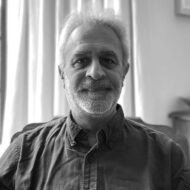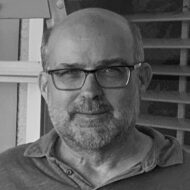Humanity’s Urban Future
What makes a good city of the future?
The future of being human is integrally tied to cities: by 2050, more than 70 per cent of the world’s population will live in an urban area. So how does one successfully plan for an urban future, knowing the city will develop beyond any current plan — and quickly?
Members of CIFAR’s new Humanity’s Urban Future program are considering what we can learn from the urban past, and what we can imagine for its future. The program will consider many important factors, including infrastructure (both material and institutional), political divisions, questions of scale, climate change, and other potential crises. In seeking answers to these pressing general questions, the program will take six cities as test-cases: Calcutta; Toronto; Shanghai; Naples; Mexico City; and Kinshasa.
By studying what makes a good city of the future, the researchers aim to make a transformative impact on urban policy and planning, regulation and infrastructure, inspiring collective deliberation and learning around how one should work towards a better urban future.
IMPACT CLUSTERS
The Humanity's Urban Future program is part of the following CIFAR Impact Clusters: Building Thriving Societies and Nurturing a Resilient Earth. CIFAR’s research programs are organized into 5 distinct Impact Clusters that address significant global issues and are committed to fostering an environment in which breakthroughs emerge.
Path to Societal Impact
Areas of focus:
- Examining six major metropolitan centres, studying how they have changed over time and in space, and the degree to which conflicts over these various conceptions of “the good city” have impacted planning outcomes
- Establishing published research that will lead to changing the discourse of planning and the understanding of cities
- Engagement with policy makers, political advisors, and civic actors
Fellows & Advisors
Program Directors
Fellows
Advisors
Support Us
CIFAR is a registered charitable organization supported by the governments of Canada and Quebec, as well as foundations, individuals, corporations and Canadian and international partner organizations.


















